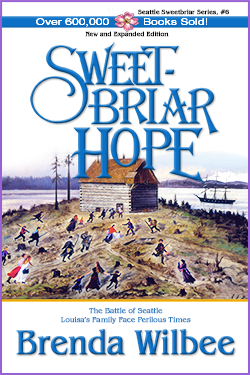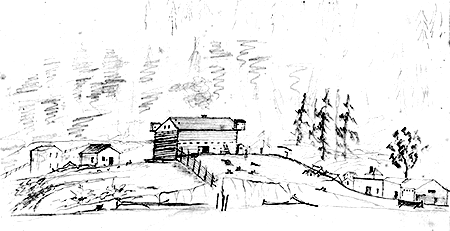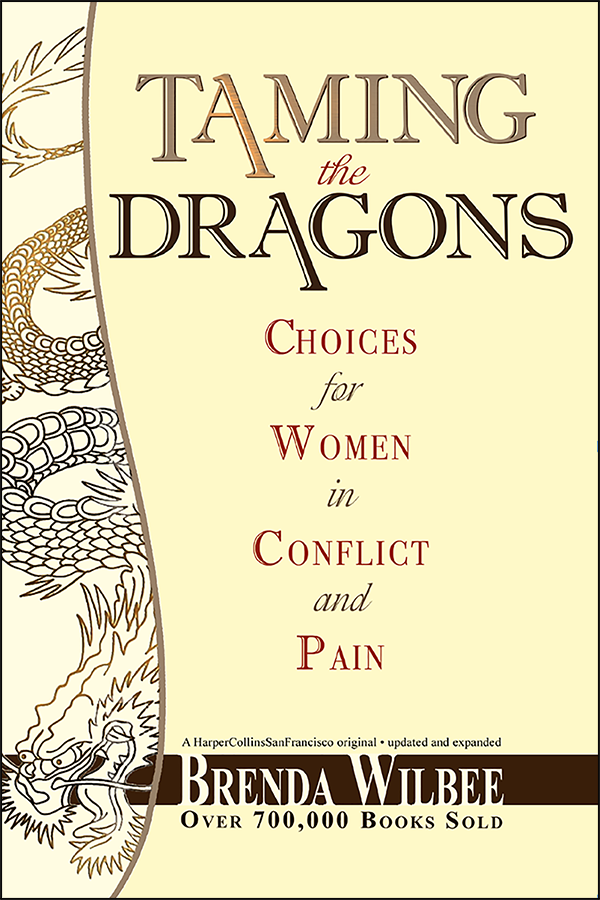
The Tinsy Winsy Rag,
your monthly connect to this writer's life - and
always something
free & fun.
Thank you!
You have successfully joined our subscriber list. Tinsy Winsy and I hope you will not be disappointed!
Your first newsletter will arrive next month. In the meantime, please enjoy the many things I offer subscribers for free - including a pdf of my latest book, Taming the Dragons. Click here. Thank you.
Blog Subjects
- Alaskan Life
- Christian Nationalism
- On Writing
- Self-Publishing
- Book Design
- Christmas
- Narcissa
- Memoir
- Sweetbriar Illustrated
- Taming the Dragons
- Skagway AK Etc
- Guidepost Devotionals
- Living With Ravens
- Inspirational
- Christianity
- Reflection
- History - Women
- History - Seattle
- History - Gold Rush
- History - Family
- Family
- Racism
- Sexual Assault
- Sexual Molestation
Recent Blogs
- Sackcloth and Ashes
- Why Deny Abuse in the Christian Community? PART I
- Giving FROM my Heart, Not Giving AWAY my Heart
- When the Bible is Weaponized
- The Call of the North: "B...bbbbbear."
Recommended Sites
• Fauzia Burke, Publicist• Jane Friedman, Marketing
• Laura Christianson, Platform
• Susy Flory, Memoir

Sweetbriar Hope #6 (ebook)
"Oh, what a book the story of my life would make!" —Louisa Boren Denny
Historians agree. Louisa Boren Denny was the epitome of the pioneer woman. She endured the Oregon Trail and laid to rest the first foudation of an American city. In this sixth, and final, novel in the Seattle Sweetbriar Series, Puget Sound's Treaty Wars move ever cloer to Seattle.
When Owhi and his allies attack Seattle at dawn, David Denny races to join fellow pioneers in quick defense of their vulnerable position. Lousia, eight months pregnant, is left to huddle in a darkened blockhouse with the other panicked women and children. They can only hope and pray—and wait out the bloody crossfire between navy cannon and native gunfire.
Will David's friendship with Chief Seattle and others Indians be enough to save Seattle? [NOTE: Not yet available. Please contact me—link below—to sign up for a notification notice.]
ISBN: 978-0-943777-27-6
PRICE: 11.95 / ebook
opening scene of Sweetbriar Hope—illustrated and expanded edition
Toward the latter part of November, Captain Hewitt's company was ordered to establish a post at the forks of the White and Green Rivers and there await orders from Lieutenant Slaughter of the regular army. The women of the village gave a supper for the volunteers the night before they left and presented them with a handsome flag.
—Roberta Frye Watt in Four Wagons West
 Inside its square-timbered walls the tables were packed with most everyone in Seattle squeezed in for supper. The ladies had prepared a fine meal for their men; and seated with her husband and daughter, her sister, and her sister's family, Louisa Boren Denny smiled a little at the fun the men were having this evening. Tomorrow they were off to war, and their excitement knew no end. It was when Ursula McConaha Wyckoff, the blacksmith's wife, presented an American flag to Captain Hewitt of Seattle's very own Company H that the wild frenzy of patriotic furor erupted. The crowd, though their stomachs were stuffed with duck and pheasant and oyster soup, nonetheless hooted and hollered, stamped their feet under the tables, and whacked their hands together like there was no tomorrow. Louisa clapped too, but with little enthusiasm. Two thoughts dominated her mind. David was going away in the morning and the sloop-of-war was already gone. Without the men and without the Decatur, how would they get on?
Inside its square-timbered walls the tables were packed with most everyone in Seattle squeezed in for supper. The ladies had prepared a fine meal for their men; and seated with her husband and daughter, her sister, and her sister's family, Louisa Boren Denny smiled a little at the fun the men were having this evening. Tomorrow they were off to war, and their excitement knew no end. It was when Ursula McConaha Wyckoff, the blacksmith's wife, presented an American flag to Captain Hewitt of Seattle's very own Company H that the wild frenzy of patriotic furor erupted. The crowd, though their stomachs were stuffed with duck and pheasant and oyster soup, nonetheless hooted and hollered, stamped their feet under the tables, and whacked their hands together like there was no tomorrow. Louisa clapped too, but with little enthusiasm. Two thoughts dominated her mind. David was going away in the morning and the sloop-of-war was already gone. Without the men and without the Decatur, how would they get on? The Decatur was the U.S. warship that had providentially put in to Seattle within days of the Yakima Indian Nation declaring war the month before. Louisa had grown accustomed to the safety the warship offered: Her 16 thirty-two-pound guns mounted on her sides; her 96 navy men and 18 marines aboard; the kindly, wise Captain Sterrett in command. But the warmongering Haida of British territory to the north had recently become bolder, coming down in their huge war canoes with no purpose but to menace, steal, and kill. A month ago they'd slit the throats of two men on Bellingham Bay, and three days ago they'd been seen near Steilacoom. Captain Sterrett had gone to scare them off.
As for her husband, whom she loved more than life itself, David was one of Seattle's 55 volunteers. Like most of these men tonight, he'd leave first thing in the morning and would be gone a long while—not coming home until January 25, when his term of enlistment was up. Company orders were to rendezvous with Lieutenant Slaughter of the regular army at White River thirty miles away. They were to build and occupy a fort as a defensive position to prevent the hostile Indians from descending the river into the Sound.
"Do you want to go home?''
Startled out of her reverie, Louisa turned sideways to meet her husband's familiar brown eyes and dark lashes.
"I think it's pretty much over," he told her, smiling, recalling her gently back to the present. "A few speeches left, nothing we haven't heard."
"Yes," she answered, frowning a little, for she was disoriented between her worries and the prevailing atmosphere of gaiety and fun surrounding them. "But what about the dishes and cleaning up? I can't leave everything to the others."
"The rest of us can manage," her sister, Mary Ann, interrupted. "Your back must be a torment." Six months pregnant, Louisa's back did bother her.
"Come on then," said David firmly, settling the matter. Somehow he managed to swing his leg over the bench without kicking Sally Bell in the ribs. It was far more difficult for Louisa to manage. Finally everyone nearby politely looked the other way so she could hike her skirts and get the job done. David bundled Emily Inez, their two-year-old daughter, into her hat and coat.
"My not want to go home, Papa," she protested, though she allowed him to feed first one arm, and then the other, into her coat.
"But if little girls will have roses in their cheeks," he told her, leaning down to touch noses and crossing his eyes to make her giggle, "they must do as roses do---"
"Go to bed whiff wiwwies!" she shrieked, jumping up and down on the bench.
"And?"
"Get up whiff moaning gories!"
Go to bed with lilies, get up with morning glories. Louisa smiled indulgently at the two of them.
"Auntie, goodbye!" her nieces and nephews called across the table. She blew kisses to each of her sister's children. One, two, three, four. Katy. Nora. Rollie. Orion.
"And goodbye to you too," she said, bending down to kiss each of the Bell girls lined up in a row on her side of the table. "Laura. Lavinia. Olive. Virginia. And Austin, can't forget Austin." She gave the baby of the Bell family his kiss. One year old, he was sound asleep in fourteen-year-old Laura's lap.
"I vos yust looking in de voods!"
Louisa glanced up. Mr. Maurer, seated at the next table, was telling a story, his high, excited voice commanding attention.
"Such a vine pig cedar tree I see!" he all but shouted. "So I go round him to look! Ya, there is a hole in him, by the ground yet. I stoop down so—to look in, and py golly—it got someting inside yet!"
Louisa caught David's eye and smiled, unaware of her particular beauty tonight. By daylight she was always a pretty woman: porcelain skin, luminous eyes as brown as a good cup of tea, her Ma had once said; her "midnight" hair drawn off her brow and left to fall in black, glimmering ringlets the full length of her back. Yet this evening she was all the prettier—her beauty made more fragile, more ethereal, her delicate features softly captured by the warm glow of the table lamps.
"Ya, it someting inside all right!" shouted Mr. Maurer. "Ya, it someting black, mit hair on id. I look closer—it got no head, no tail, so, I gives it a poke mit my gun, and py golly I soon find out vot it is!"
"Ya, vat is it?" hollered Lewis Wyckoff, the blacksmith, three heads down and daring to imitate Mr. Maurer outrageously.
"Vy, Mr. Wyckoff, it's a big black bear—so pig as a cow! It shump up! An' say 'gr-r-r' an' den he comes right out at me! Mein Got—I vos dot skert—I run all de vay 'ome!"
Such happy laughter! thought Louisa, her worries momentarily vanishing. With loving pride she watched her handsome husband clap Mr. Maurer warmly on the back. "Why didn't you shoot him, Maurer?" he demanded. The German proprietor of Maurer's Eatery & Lodge looked up vacantly. "The bear!" prodded David. “Everyone needs a good bear rug.”
"Veil, py golly," sputtered Mr. Maurer sheepishly, wiping his forehead with his sleeve. "I never tink of dot! I vos yust too busy gettin' out of 'is vay!"
Laughter to peel paint from the ceiling! Louisa put both hands to her eyes to wipe the tears.
"May all our men be as brave!" someone hollered.
"To bravery!"
"To bravery!"
"Ready?" David asked Louisa, though they were still laughing uproariously at Mr. Maurer.
"Oh yes! Oh dear yes," she said, and had to wipe her eyes again.
Finally, with Emily Inez slung over his shoulder, his right hand against the small of Louisa's back, David steered her toward the door. A fierce pride in him rushed through her limbs and heart like a wind. Was there a woman anywhere married to so fine a man as her David Denny? So kind? So gentle and strong? So wise? She turned to see him. So tall! And when he swiveled around to hail a friend, exposing his handsome profile, her pride swelled to burst her heart! And then to see his eyes, crinkling at the edges, turn back to look at her? He could make her melt and hardly had to put his mind to it.
She nodded with happiness and joy to all their friends as she squeezed between the tight benches, sometimes bumping her knees into people's backs so closely was everyone seated. The Hanford men, Ed and Seymore. Widow Holgate and her daughter Abbie Jane (married to Ed Hanford), as well as her younger, unmarried children: Lemuel, John, Olivia, and Milton. The loggers from Salmon Bay—Edmund Carr, William Strickler, Frank McNatt, John Ross. Mr. and Mrs. Yesler. The Butlers. Uncle Tommy Mercer and his daughters. The Neelys. When Louisa passed Diana Collins she felt a pang of pity. Diana's husband had taken up with an Indian mistress. The news was all over town.
"Hello, Mrs. Russell, Mr. Russell, how are the children?" she asked, stopping at their large family table to inquire after the three orphans they'd taken in after last month's White River massacre, doubling their number of children. Being refugees themselves, they were all crowded into her son's house, Sheriff Tom Russell. His mother dabbed her eyes with a sodden hanky. "The poor wee dears. My husband said not to bring 'em, to leave 'em at Tom's. They scare so easy. And what with all this talk of fighting and whatnot."
"Now, Mother, you know Mary Jane's with 'em," said Mr. Russell firmly, a chubby man dressed in overalls and a stained flannel shirt, referring to his eldest daughter. A sparkle suddenly glinted in his eye, and he elbowed the two girls seated either side of him. "Louisa, have you met our other daughters? Nancy and Emma here, they up and married out of turn."
"Now, Pa, you just hush!" hissed Nancy, married to John Thomas. "That's so old-fashioned these days to wait for an older sister to get married!"
Emma, who'd married Jim Crow, merely rolled her eyes, and David urged Louisa on.
Wisely, he skirted around the table where the Do-Nothings sat—the Wetmores and Woodins and some of the other newcomers who, despite everything, still pooh-poohed the Indian troubles. Louisa ignored their stony glares. Last month David had shamed Ben Wetmore in a fight. They hated him.
At the preacher's table she said, "Kate Blaine, you're looking lovely."
The preacher's wife turned awkwardly on the bench. "I might say the same of you, Louisa."
"Then do," said Louisa, teasing her. But Kate Blaine had no sense of humor and didn't understand. "How are you feeling?" Louisa hurried to ask, Kate also pregnant.
"Like I swallowed a stone. And you?"
"My back's tiresome."
"It'll be over one of these days," sighed Kate.
"Another two months to go?"
"I'm down to counting the weeks now. Seven!"
"I'm still counting months. Three, maybe four for me."
David gave her a nudge. Mr. Plummer, proprietor of Plummer & Chase and the current postmaster, had clambered up on a bench and was proposing a toast for "our gallant boys!"
"Whew, but it's good to be outdoors!" said David two minutes later, moonlight bathing their faces and putting a pearly glow to their skin. "I was feeling a little smothered in there."
Louisa reached for his hand, at the same time idly patting Watch, their black Labrador hound, who'd been waiting in the cold for them to come out. She heard a soft, rushing sound. A hostile Indian?
No, a spotted fawn. Bounding out from behind the mill, leaping up through the clearing toward the church and parsonage, alive with speed and wild loveliness. "Oh, look!" she cried in relief, pointing and smiling at the pretty picture the baby deer made. A flying glimpse of moonlight made flesh! Suddenly an Indian dog careered out of the trees, baying, giving chase. Another. And another.
"Watch!" warned David. "Stay."
Reluctantly Watch held back, but the Indian curs kept on, barking and baying their way deep into the woods. Soon both the dogs and deer were gone, hunter and hunted. The sound of the chase died in the moonlit woods.
| SWEETBRIAR BOOKS |
Sweetbriar #1 (ebook) | Sweetbriar Bride #2 (ebook) | Sweetbriar Spring #3 (ebook) |
| Sweetbriar Summer #4 (ebook) | Sweetbriar Autumn #5 (ebook) | Sweetbriar Hope #6 (ebook) | |
| FICTION | Thetis Island (ebook) | Shipwreck! (ebook) | |
| NONFICTION | Taming The Dragons (BOOK) | Skagway: It's All About The Gold (BOOK) | |
If you'd like to know when the new edition of Sweetbriar Hope is reissued, please sign up for my email list.


